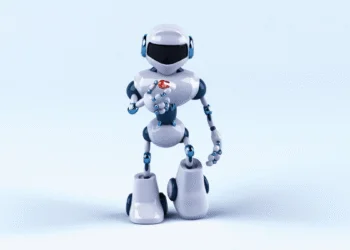Citadel founder and CEO Ken Griffin has expressed scepticism about the replacement of human jobs by artificial intelligence (AI), contradicting Elon Musk’s predictions, Tesla CEO, at an event in New York.
Griffin stated “Some are convinced that within three years almost everything we do as humans will be done in one form or another by LLMs and other AI tools. For a number of reasons, I am not convinced that these models will achieve that type of breakthrough in the near future”. In a CNBC report on Monday.
Griffin, who is in the hedge fund business as well as owns an electronic market maker, noted problems with applying machine learning, which is timely updates. He drew the audience’s attention to the fact that self-driving cars have problems with the weather, specifically snow, which means that ML models work better when conditions are more stable.
While expressing doubts about the emergence of AI in the short term, Griffin did not exclude the fact that the development of sophisticated technologies will inevitably change the world in the future. He was even able to forecast the scientists’ ability to eliminate cancer through the increases in computing capabilities.
Griffin’s statements are made at a time when debates over the effects of AI on employment are being active. In April, at the VivaTech 2024 international congress in Paris, Musk argued that Artificial Intelligence might cost hundreds of millions of people their jobs.
Musk envisaged a situation where there is high income across the world and the demands for products or services are already met. Equally, the father of AI Geoffrey Hinton has also been recorded saying that AI would lead to the loss of so many jobs. A means of dealing with the economic effect of AI presented by Hinton is the introduction of a basic income.
Also Read: Morgan Freeman Calls Out AI Voice Misuse: A Call for Regulation
AI Revolution
Additionally, another strategy that has been postulated regarding the impacts of the fourth industrial revolution is by an investor by the name of Mark Cuban who has proposed that robots should be taxed. Cuban’s proposal sets out with an objection that was made by a venture capitalist person by the name of Marc Andreessen concerning the rising use of robots in the job markets.
AI may be slowly penetrating each of the fields because the acceptance and integration of AI may take a long period.
However, AI implementation has been surrounded with a lot of marketing hype and both, organizations themselves and AI vendors, often tend to make exaggerated claims about productivity increases as well as usually fail to determine tangible application areas. However, due to the economic feasibility of implementing AI-supported solutions recent research at MIT indicates that job displacement could be less kinetic than what has been expected. This suggests that the introduction of the new force (AI) into the workforce might not be as disruptive as believed.

















